No matter the focus of your camp, the resources below can help you to integrate STEM activities into your daily plans, broadening the horizons for both your camp and your campers. Below, you will find online resources, lesson plans, workshops, and local STEM-focused organizations.
Online Resources and Lesson Plans
- STEM Activities for Kids: This resource lists ways to integrate STEM into any summer camp curriculum in fun and exciting ways.
- MySci K-5: The mySci K-5 curriculum from Washington University strives to develop the region’s next generation of scientific thinkers by engaging elementary students in science, technology, engineering and math (STEM) through interactive learning experiences and creative curriculum.
- Coding For Kids: 46 Free Classes, Websites and Apps: A comprehensive list of resources, tools, and apps to teach kickstart kids’ interest in technology and programming through engaging games and interactive lessons.
- STEM In Your Program: A list of online resources, curriculum, and activities to integrate stem into camps for all ages compiled by the AfterSchool Alliance.
- STEM STL Instruction Resources: STEMSTL is a collaborative consortium committed to equitable access to high-quality STEM learning and employment opportunities for all learners in the St. Louis Metro region. STEMSTL provides teachers with professional development, classroom resources, and field experience opportunities.
- Code.org Regional Partner: Code.org® is an education innovation nonprofit dedicated to the vision that every student in every school has the opportunity to learn computer science as part of their core K-12 education. They provide free online resources for students to learn how to code and supports teachers through professional learning, comprehensive curricula, and additional assistance.
- MEEA Kids: MEEA has created Outdoor Learning Kits that provide children with the opportunity to explore nature. Each kit is designed to be mostly screen-free, to need minimal adult facilitation, and be accessible to anyone, anywhere–whether you live in rural, urban, or suburban settings.
- MEEA Lesson Database: At this link, MEEA created a searchable database for teachers and educators to find environmental and nature-based lesson plans.
- St. Louis MadScience: Mad Science of St. Louis is a leading science enrichment provider that delivers unique, hands-on science experiences for children through after-school programs, birthday parties, workshops, special events, and summer camps.
- Building Climate Literacy with Community Development Projects: An article from Edutopia about how to teach children about the climate using community-based projects.
- Best STEM Read Alouds: A list of STEM books that allow teachers and educators to connect STEM learning with literacy and writing.
- Statistics in Schools: Statistics in Schools (SIS) brings school subjects to life using real-world Census Bureau statistics to create materials for use year after year for K-12 students. Explore this site for engaging resources and activities in social studies, math, English, geography, sociology and more
- Science Center St. Louis: The Science Center is one of few free, nonprofit science museums in the country and serves hundreds of thousands of people each year. Its campus features hundreds of interactive experiences in various galleries, the iconic James S. McDonnell Planetarium and a five-story OMNIMAX® Theater.
- Challenger STL: The mission of the Challenger Learning Center is to students and teachers in dynamic, hands-on exploration and discovery opportunities that strengthen knowledge in science, technology, engineering, and mathematics (STEM), inspire students to pursue careers in these fields, and provide an outlet to learn and apply important life skills.
- Academy of Science of St. Louis: The Academy’s mission is to promote the public understanding of science by offering a broad range of science speakers, tours, and community-wide public talks, workshops and citizen science events catering to all ages and backgrounds. Programs are focused on scientific outreach, education, resource sharing, and the recognition of scientific accomplishment.
- The Disruption Department: The Disruption Department aims to make information accessible in order to facilitate innovation on all levels of society. Their website includes an explore page with articles on the latest scientific research, summarized and made accessible by AI.
- Urban Harvest STL: Urban Harvest STL believes that all members of our community should have equitable access to fresh, healthy food regardless of socioeconomic status, race or location. They grow healthy produce across a network of urban farms in the heart of St. Louis and donate the majority of the harvest to nonprofit partners. Urban Harvest STL also educates and engages the surrounding community in these efforts.
- Seed STL: Seed St. Louis connects people to the land, to their food, and to each other through supporting community gardens, school gardens, and urban orchards in neighborhoods throughout the St. Louis Region. Their purpose is to provide communities with the tools, education, and empowerment to grow their own food.
- Known & Grown STL: Known & Grown STL is a program of the Missouri Coalition for the Environment that works to build a more resilient and sustainable food system by supporting and spreading awareness about eco-friendly farmers within 150 miles of St. Louis.
